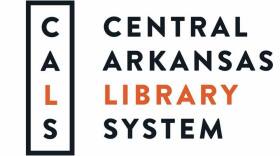Topics of media misinformation, how the changes in media have also changed how the public interacts with it and what a community centered media would look like are focuses of a panel from the Central Arkansas Library System. The panel, "Imagining Civic Media" will take place virtually Thursday at 6 p.m. Those interested in attending can register through the Central Arkansas Library System.
KUAR spoke with panelist Sam Gill, President and CEO of the Doris Duke Charitable Foundation, about media engagement and what messages he hopes attendees take away from the event. Below is a transcript of the aired conversation.
Gill: "I think when the internet really began to emerge in the 90s, I think the feeling was, ‘This is going to be the greatest platform in human history for information and for expression.’ Everyone will have access, everyone will become a producer, everyone will have the opportunity to speak their minds or to share their knowledge and insight, or to connect with each other.
I think a lot of that is true. Anyone with kids knows that it’s a lot easier to help them answer questions today with Wikipedia than it ever was to help them answer questions with a printed encyclopedia where you had to make sure you had the right word that you looked up and the most up to day edition.
I think it’s also true that there are so many more voices than we were ever able to hear when there was one town newspaper, one major radio station and then three national networks. And you look at powerful social movements like Me Too and Black Lives Matter and you couldn’t imagine without the internet.
I think the problem is, that’s not the only thing the internet’s enabled…I think the internet has also made it harder to know what the truth is because anyone can express their idea of the truth."
KUAR: So when it comes to misinformation or disinformation or even strengthening citizen engagement, how much of this is on media outlets and much responsibility is on the reader or those interacting with that media?
Gill: "I think properties that see themselves as media properties - newspapers, radio stations, television stations – by and large recognize that they are governed by this standard. Now, there are different kinds of media properties, there’s obviously much more partisan media, in particular like cable television, so I’m not trying to pretend that those questions aren’t complicated, but we’ve got some mechanisms, some institutional mechanisms, for addressing those questions.
I think the more challenging issues is that so many of the places that we encounter information – on blogs, on a YouTube video, on Facebook – the providers of these services say forcefully, ‘We’re not media companies. We’re not responsible for the content that appears on our platforms.’ And to some extend that’s protected by law. And I think that’s a bigger problem. I think a bigger problem is that we’ve got all of these new places that you can encounter information and they don’t see themselves as media and therefore [are] unwilling to take on the responsibility for what the impact of the content, what the impact of the information could be on the audience."
KUAR: What do you expect this panel to touch on? What messages do you hope to get across?
Gill: "I hope that this conversation is an optimistic conversation. I think that it’s in our hands to make sure that our democracy can be an informed democracy. I hope this panel is a creative panel. I don’t think nostalgia is our friend in this discussion. I think the question is, ‘How can we use what technology enables us to do to enable forward progress, to push progress forward?’ And I hope that this panel is provocative in the good sense, which is that I hope what this panel is able to do is to help this community see itself in this really important question."





